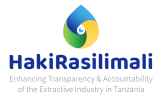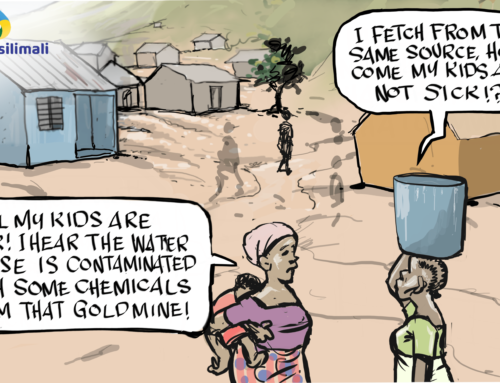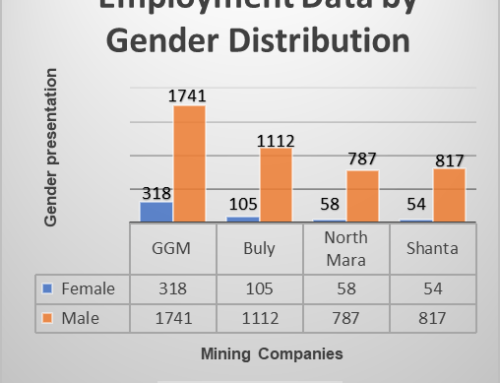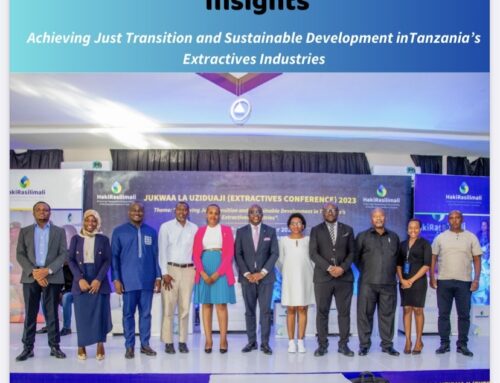There are concerns that Tanzania’s lucrative extractive industry is not generating adequate revenues and not contributing significantly to the reduction of poverty and that the country could slide into another “resource curse” a phenomenon so common in many African resource-rich countries. This was said by Dr. Martin Kijazi, a consultant at the Center for International Forestry Research (CIFOR) at the Policy Forum Breakfast Debate held on the 24th of June 2016.
Presenting a research report conducted by Oxfam entitled: “The Weak Link: The Role of Local Institutions in Accountable Natural Resource Management,” Dr. Kijazi lamented that despite the mining sector seeing rapid growth, its contribution to GDP has grown relatively slowly.
“The extractive sector in Tanzania has seen unsatisfactory contribution to the economy with analysts bemoaning the excessive generosity to investors, who are often protected by ‘fiscal stabilization’ clauses in mining agreements which have resulted in limited government revenue despite industry’s perceived profits increase,” he said.
For Tanzania’s extractive revenues to benefit the poor, he counseled, there has to be a responsive and accountable revenue collection, equitable budget process and expenditure in sectors that will transform the rural economy such as agriculture, health and education.
The second presenter at the debate was Silas Olan’g from Natural Resource Governance Institute who presented on “The Political Economy Distribution of Extractive Resource Revenue Distribution” who said that there was huge problem with the disclosure of information about shared revenues up to the local level and that because the revenue sharing mechanism is complex, this risked hindering beneficiaries from verifying the correct payments due.
“If any step of the process or factor in the formula is opaque, calculation of “right share” is impossible and the lack of transparency at the upstream level (company payments) affects transparency at the lower levels, “ he stressed, also advising that the quality of monitoring revenues at the local level depends on the overall local financial management and supervision capacity of the local authorities.
Mr. Olan’g said that there was rationale for extractive revenues sharing with local authorities which included the need to compensate local communities for the negative impacts of extraction, mitigate or prevent violent conflict, to respond to local claims for benefits based on the ideas of local ownership and to promote regional income equality between resource and non-resource rich regions.
He recommended that for revenue sharing with subnational authorities to be legitimate and successful, there needed to be a national debate to reach consensus on the rationale (ultimate policy objective) of revenue allocation, a shared understanding of the revenue sharing formula amongst the public (perception of non-producing regions of receiving a fair treatment is as important as the ultimate distribution of revenues) and a legislation that does not contain ambiguities and avoids discretional allocations, applies equally to all sub-national governments and is enforceable by each beneficiary.
Hon. Upendo Peneza (MP), the discussant during the debate, pointed out that in the mining sector there are some funds that goe to the people as service levy (0.3% of annual company turnover) so it is very crucial for LGA officials to be given the capacity to handle these funds to be used to benefit the people. She lastly strongly urged CSOs to keep doing the good work that they do in the extractive sector which according to her, the organisations are a good source of information on natural resources especially for policy makers.





